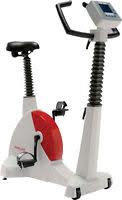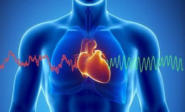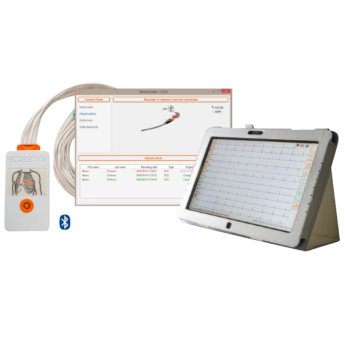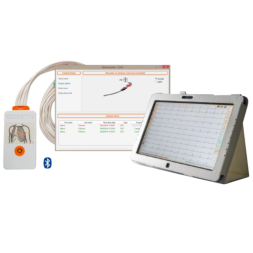



© 2023 - Centro Medicina Natural y Antienvejecimiento - Neural therapy, Homeopathy, Ozone therapy, Carboxytherapy, Mesotherapy
Avda. Juan Carlos I, nº 29, portal 5, 2ºB -- 29680, Estepona (Málaga)
Exercise Stress test
The
exercise
stress
test
(stress
ECG,
stress
test,
graded
exercise
test,
treadmill
test
or
exercise
electrocardiogram)
is
used
to
test
for
heart
disease
and
it
provides
information
about
how
your
heart
respond
to
exertion.
It
involves
walking
on
a
treadmill
or
pedaling
a
stationary
bike
at
increasing
levels
of
dificulty, while your blood pressure, heart rate and electrocardiogram are monitored by a doctor.
Do You need a Stress Test?
We recommend to have a stress test to:
Check if there is adequate blood flow to the heart during increasing levels of activity.
Assess the function of heart valves if they are not functioning properly
Determine the likelihood of having coronary heart disease and the need for further evaluation
Check the effectiveness of procedures done to improve blood flow within the heart vessels in people with coronary heart disease
Identify abnormal heart rhythms
Evaluate the effectiveness of your heart medications to control angina and ischemia
Help to
know the kind and level of exercise appropriate for a patient.
How Should You Prepare for the stress ECG?
Before your Exercise Stress Test:
Ask your doctor the protocol if you have
diabetes
Wear soft-soled shoes suitable for walking and comfortable clothes. Do not bring valuables.
If you use an inhaler for your breathing, bring it to the test.
Don´t eat or drink anything except water for four hours before the test.
Don´t drink or eat foods containing
caffeine
for 12 hours before the test.
On
the
day
of
your
test
don´t
take
the
following
heart
medications
unless
your
doctor
tells
you
otherwise,
or
if
the
medication
is
needed to treat chest discomfort the day of the test: Isosorbide and
Nitroglycerin
.
What Happens During the Exercise Stress Test?
Before
you
start
exercising,
we
will
take
your
blood
pressure.and
we
will
place
electrodes
on
your
chest
that
are
attached
to
an
electrocardiogram and we will perform an ECG to measure your heart rate at rest.
You
will
begin
to
exercise
by
walking
on
a
treadmill
or
pedaling
a
stationary
bicycle.
The
rate
of
exercise
or
degree
of
difficulty
will
gradually
increase.
You
will
be
asked
to
exercise
until
you
feel
exhausted.
At
regular
intervals
we
will
ask
how
you
are
feeling.
Please
tell
us
if
you
feel
chest,
arm,
or
jaw
pain
or
discomfort,
short
of
breath,
dizzy,
lightheaded,
or
any
other
unusual
symptoms.
But
we
will
watch
for
any
symptoms or changes on the ECG monitor that suggest the test should be stopped.
After the test you will walk or pedal slowly for a couple of minutes to cool down.
Although the appointment lasts about one hour, the exercise time is usually between 7-12 minutes.
Healthy people who take the test are at very little risk. It's about the same as if they walk fast or jog up a big hill.
CONTRAINDICATIONS
Absolute contraindications
include the following:
Acute myocardial infarction
(MI; within 2 days)
Unstable angina
not previously stabilized by medical therapy
Uncontrolled cardiac arrhythmias causing symptoms or hemodynamic compromise
Symptomatic severe
aortic stenosis
Uncontrolled symptomatic
heart failure
Acute pulmonary embolus or pulmonary infarction
Acute
myocarditis
or pericarditis
Acute aortic dissection
Relative contraindications
can be superseded if the benefits of exercise outweigh the risks. They include the following:
Left main coronary stenosis
Moderate stenotic valvular heart disease
Electrolyte abnormalities
Severe
arterial
hypertension
–
In
the
absence
of
definite
evidence,
the
committee
suggests
an
SBP
higher
than
200
mm
Hg,
a
DBP
higher than 110 mm Hg, or both
Tachyarrhythmias or bradyarrhythmias
Hypertrophic cardiomyopathy
and any other forms of outflow tract obstruction
Mental or physical impairment leading to an inability to exercise adequately
High-degree
atrioventricular (AV) block





























If you would like additional information regarding our services or to request an appointment, you can contact us by phone
(952 80 53
68)
or
by
email
.





© 2023 - Centro Medicina Natural y Antienvejecimiento
Tel: 952 80 53 68
E-mail: info@medicinabiologica.es

The
exercise
stress
test
(stress
ECG,
stress
test,
graded
exercise
test,
treadmill
test
or
exercise
electrocardiogram)
is
used
to
test
for
heart
disease
and
it
provides
information
about
how
your
heart
respond
to
exertion.
It
involves
walking
on
a
treadmill
or
pedaling
a
stationary
bike
at
increasing
levels
of
dificulty,
while
your
blood
pressure,
heart
rate
and
electrocardiogram
are
monitored by a doctor.
Do You need a Stress Test?
We recommend to have a stress test to:
Check
if
there
is
adequate
blood
flow
to
the
heart during increasing levels of activity.
Assess
the
function
of
heart
valves
if
they
are
not functioning properly
Determine
the
likelihood
of
having
coronary
heart
disease
and
the need for further evaluation
Check
the
effectiveness
of
procedures
done
to
improve
blood
flow within the heart vessels in people with coronary heart disease
Identify abnormal heart rhythms
Evaluate
the
effectiveness
of
your
heart
medications
to
control
angina and ischemia
Help
to
know
the
kind
and
level
of
exercise
appropriate
for
a
patient.
How Should You Prepare for the stress ECG?
Before your Exercise Stress Test:
Ask your doctor the protocol if you have
diabetes
Wear
soft-soled
shoes
suitable
for
walking
and
comfortable
clothes. Do not bring valuables.
If you use an inhaler for your breathing, bring it to the test.
Don´t
eat
or
drink
anything
except
water
for
four
hours
before
the test.
Don´t
drink
or
eat
foods
containing
caffeine
for
12
hours
before
the test.
On
the
day
of
your
test
don´t
take
the
following
heart
medications
unless
your
doctor
tells
you
otherwise,
or
if
the
medication
is
needed
to
treat
chest
discomfort
the
day
of
the
test:
Isosorbide and
Nitroglycerin
.
What Happens During the Exercise Stress Test?
Before
you
start
exercising,
we
will
take
your
blood
pressure.and
we
will
place
electrodes
on
your
chest
that
are
attached
to
an
electrocardiogram
and
we
will
perform
an
ECG
to
measure
your
heart
rate at rest.
You
will
begin
to
exercise
by
walking
on
a
treadmill
or
pedaling
a
stationary
bicycle.
The
rate
of
exercise
or
degree
of
difficulty
will
gradually
increase.
You
will
be
asked
to
exercise
until
you
feel
exhausted.
At
regular
intervals
we
will
ask
how
you
are
feeling.
Please
tell
us
if
you
feel
chest,
arm,
or
jaw
pain
or
discomfort,
short
of
breath,
dizzy,
lightheaded,
or
any
other
unusual
symptoms.
But
we
will
watch
for
any
symptoms
or
changes
on
the
ECG
monitor
that
suggest the test should be stopped.
After
the
test
you
will
walk
or
pedal
slowly
for
a
couple
of
minutes
to
cool down.
Although
the
appointment
lasts
about
one
hour,
the
exercise
time
is
usually between 7-12 minutes.
Healthy
people
who
take
the
test
are
at
very
little
risk.
It's
about
the
same as if they walk fast or jog up a big hill.
CONTRAINDICATIONS
Absolute
contraindications
include
the
following:
Acute myocardial infarction
(MI; within 2 days)
Unstable angina
not
previously stabilized by medical therapy
Uncontrolled
cardiac
arrhythmias
causing
symptoms
or
hemodynamic compromise
Symptomatic severe
aortic stenosis
Uncontrolled symptomatic
heart failure
Acute pulmonary embolus or pulmonary infarction
Acute
myocarditis
or pericarditis
Acute aortic dissection
Relative
contraindications
can
be
superseded
if
the
benefits
of
exercise outweigh the risks. They include the following:
Left main coronary stenosis
Moderate stenotic valvular heart disease
Electrolyte abnormalities
Severe
arterial
hypertension
–
In
the
absence
of
definite
evidence,
the
committee
suggests
an
SBP
higher
than
200
mm
Hg,
a
DBP higher than 110 mm Hg, or both
Tachyarrhythmias or bradyarrhythmias
Hypertrophic
cardiomyopathy
and
any
other
forms
of
outflow
tract obstruction
Mental
or
physical
impairment
leading
to
an
inability
to
exercise
adequately
High-degree
atrioventricular (AV) block
If
you
would
like
additional
information
regarding
our
services
or
to request an appointment, you can contact us by phone
(952 80 53
68)
or
by
email
.





























Exercise Stress test




















